
The current strain of the coronavirus has officially been classified as a pandemic by the World Health Organization, making it essential that everyone take steps to stay healthy and avoid spreading the virus.
Property managers, landlords and housing providers should take steps to protect and educate themselves and their residents.
This article offers tips, advice and best practices for property managers and landlords regarding the coronavirus.
The typical seasonal viruses cause the common cold and flu which can escalate to pneumonia or worse. Below are best practices to aid in the coronavirus outbreak control efforts within your rental community.
The bad news: This new virus is unpredictable at this point in time.
The good news: Collectively, we can help slow the spread and protect our most vulnerable population.
How to Prepare for the Coronavirus
Can anyone be completely prepared for the unexpected and unpredictable?
Pilots never know when they will hit turbulence, but the plane is always checked over before takeoff, training is ongoing, and flight crews are always at the ready for whatever comes next.
Preparation isn’t having all the answers or escaping harm but rather the process of staying ready for whatever comes next.
Education
Educate yourself so you can educate others. Curated resources are provided throughout this article to use in keeping current and sharing information with your residents.
The two most useful links on the Coronavirus Disease 2019 (COVID-19 also known as SARS-CoV-2) come from the World Health Organization (WHO) and the Center for Disease Control (CDC).
These two resources above provide information for the general public, health officials, and governments. To address the rental industry, and specifically rental communities such as apartment complexes, these sites might also provide some insight:
National Multifamily Housing Council (NMHC): Coronavirus Preparedness for Apartment Firms
Institute of Real Estate Management (IREM) is offering this downloadable, printable located here: Pandemic Guide for Real Estate Managers
Changed Thinking = Changed Habits
Life as we know it is now changed in ways we can’t even fathom. Your tenants will be looking to you for guidance and reassurance during this upheaval. To be the calm in their storm, you will need to dig deep and stay level headed yourself.
We also collectively need to start changing personal habits like refraining from touch. These habits are ours to break individually to impact the collective. Both staying calm and changing our personal habits must start with changing our thoughts. Mindfulness is key! Be in the moment, be present, be proactive.
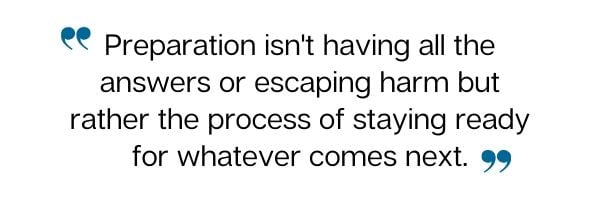
Rental Industry Outbreak Concerns and Suggestions
Cleaning and Disinfecting
For areas that are kept open to the public, you will need to provide a heightened level of cleaning standards. Take special care to disinfect handrails, stairwells, doorknobs, light switches frequently. Some other areas that will need frequent disinfection would be laundry facilities, playground equipment, and community benches.
Common Areas
Be prepared to close off common areas temporarily such as:
- Pool areas
- Clubhouse
- Community centers
- Fitness rooms
Prepare for Quarantines
As seen in the news China, Italy, and some regional areas in the U.S. are undergoing massive required quarantine. Experts are currently unsure if that will become a major factor throughout the US but many are suggesting self-imposed quarantines.
With that in mind, think about your office and daily activities that could be converted to virtual tasks conducted remotely. Then, think about your tenants experiencing work-from-home requirements, illness, or general quarantine. Special consideration may be required for adding the needs of residents within a duplex, condo, apartment building, or HOAs.
Virtual Office
Consider changing to a completely virtual office using online property management software which will allow you to:
- Work from home or log in virtually from anywhere
- Give your employees online access to the software to work from home
- Sign up for online electronic rent payments
- Offer tenants online portal access to pay their rent electronically
- Stop accepting physical cash/checks. Many property management software solutions offer a third-party integration with PayNearMe allowing tenants to pay their rent by cash at convenience stores and other neighborhood locations.
- Use the software to send important information to your tenants by bulk email and/or text and SMS messages
Finances
Decide ahead of time how you will handle late payments. Many residents will not be able to work either because of illness or because their occupation doesn’t allow them to work from home. That loss of income will make tenants prioritize their needs (such as food, medicine, and toiletries) above rent payments.
The Federal government is looking to waive federal income taxes this year and are pressing for the forgiveness of federal student loans and mortgages as well as other efforts to mitigate a financial fallout. Other countries are suspending mortgage payments during this epidemic. Now is a good time to consider your late fee policy and any rent concessions.
Rental Inspections
Be cautious in planning and conducting rental inspections. Consider postponing them entirely if your area is experiencing a current outbreak. Another option would be to conduct virtual inspections using Facebook Messenger, Google Duo, Facetime, Skype, or other video conferencing tools.
Vacancies
Depending on your local area, landlords may opt to use lock-boxes for self showings. Again, online video conferencing could be deployed so you can be there virtual while prospective tenants tour the unit.
If need be, hire bio-hazard specialists or specialty cleaning crew to help you clean a rental after a move-out. Then, continue disinfecting between vacancy showings.

Providing Safety Information to Your Tenants
As this outbreak becomes more prevalent in your area, take a page from the airline attendant flying through unexpected turbulence who keeps their passengers calm and safe. As a landlord, you have the same charge.
We can learn from airlines’ simple common-sense approach to educating on the unexpected:
- Airlines have a visual handout, spoken instructions, and physically demonstrate safety advice. Provide clear and not over complicated information in many different formats to maximize reach, understanding, and compliance.
- Cover basic and worst-case scenario information in a calm and informative manner.
- Just as the airlines instruct to put on your oxygen mask before helping those around you, guide your residents to first take care of themselves so that they can then help others.
Keep in mind that your residents will be looking to you for advice on what to do, especially in extreme circumstances, like a quarantine. This is especially true for managers in college towns, who’s primary residents are students who may crave reassurance and support while living on their own for the first time. One of the best things you can do is stay calm, be prepared, and help educate your tenants.
Just like some airlines infuse humor into the preflight instructions, you can add some levity into the information you provide your tenants.
Head on over to WashYourLyrics.com to personalize the handwashing instructions from the UK National Health Service with song lyrics to help people give attention to the full 20 seconds recommended for the task.
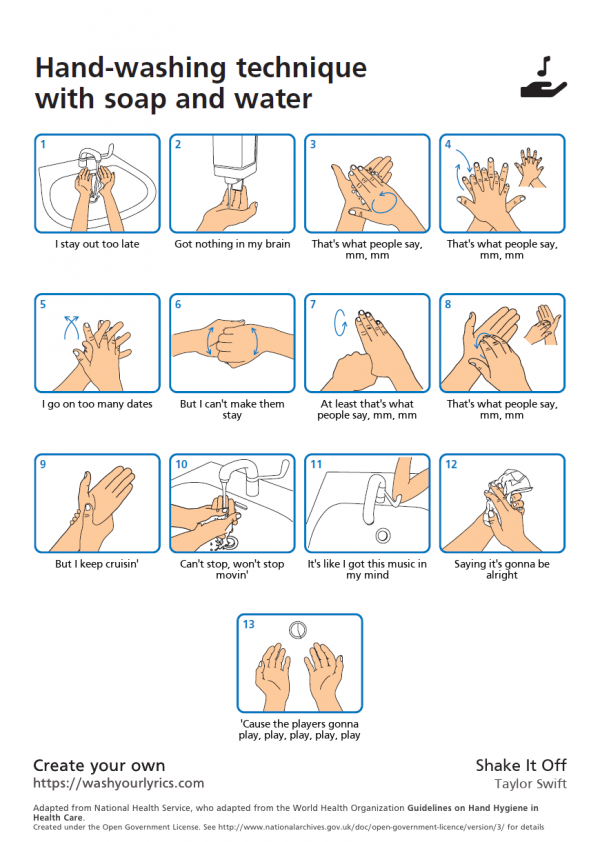
Generate your own handwashing infographics based on your favorite song lyrics at washyourlyrics.com
Coronavirus Information Online
Blogs, the evening news, Facebook posts — the internet is inundated with opinions, hypotheticals, and fear. Separate from the noise and go to the experts to pull information to share with your residents.
Up-to-date national information from the Centers for Disease Control and Prevention Coronavirus Disease 2019 (COVID-19) can be found located here: coronavirus.gov
From there, the CDC offers these pages of advice for the public that have resources, tools, videos you can copy and use in your tenant handouts and emails. Click on the headings below:
Helpful basic protective measure videos you can share with your residents.
Currently, masks are only recommended when you are ill to contain the additional spread of infection. This page gives all the details on how to do it properly and when.
This excellent resource from CDC offering answers to common questions with World Health Organization (WHO) sharable graphics for your tenant handouts.
Here are two examples:
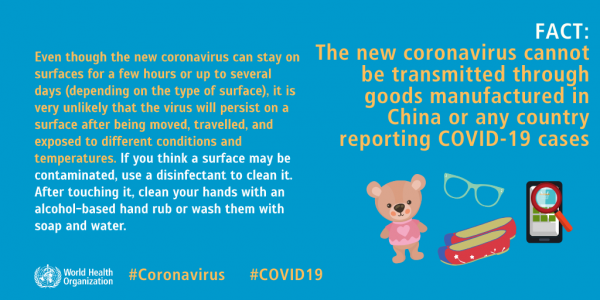
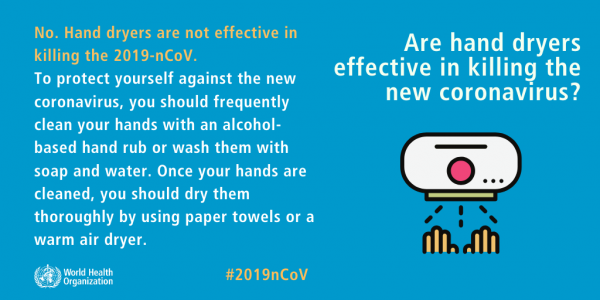
Final Thoughts
Although, now a pandemic, some still believe this is a non-issue that will blow over. Optimistically, we all hope they are correct. Having said that, this practical advice, as well as following expert and local governing advice extends kindness and care for the most vulnerable members of our population.
At minimum, our actions will slow down all general contagions.
In a worst-case scenario, those same behaviors will contribute to saving lives.




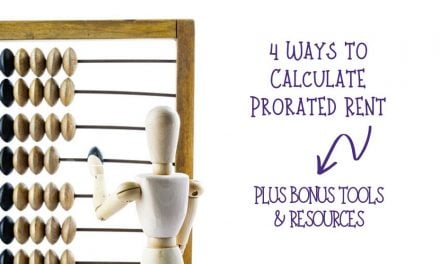

This has been very helpful. Thank you!
Lily, Thank you for taking the time out of your busy day to leave us feedback. As a previous property manager, I faced many emergency and urgent situations but these current events are certainly unprecedented. So, I am so very happy this article was helpful.
Thanks you so much.
I read you blog. content very helpful.
We appreciate that, Aha. Glad to be able to provide this information.
What additional cleaning protocols should be followed before a new tenant moves into our property? I know we should disinfect, but are there professional cleaning services that specialize in this type of cleaning?
Staci, those are great questions. Yes, there are cleaning services that specialize in decontamination, bio-hazards, and the like. Using those terms and/or adding coronavirus to your search plus your city or county name should bring up some options for you. Of course, if you are going to tackle cleaning yourselves, be sure to first clean all surfaces prior to disinfection as directed by the CDC and follow all CDC guidelines.
We are putting together an updated resource page to help landlords through these uncertain times so if you haven’t already, feel free to sign-up for email updates to receive it in your inbox. I will also come back here and post a link to that page as soon as it is published.
Hi Staci, as promised, we’ve put together a few more resources to help you and other landlords and property managers on the front line:
Home and Office Cleaning Tips for a Safe Environment
The Ultimate State Guide to Coronavirus Information (Plus District and Territories)
Top Real Estate COVID-19 Resources: Updated for Landlords and Property Managers
Do the regular rules for breaking a lease apply or is it possible to forgive or make a payment plan? Thanks
Great question! Unless there are provisions in the lease for this type of scenario OR unless a National, State, or local decree or mandate is issued, the lease terms stand.
I recommend tenants do some quick research for state financial assistance during this time before contacting their landlord: The Ultimate State Guide to Coronavirus Information
From there, a tenant should contact their landlord or property manager as soon as possible to discuss their financial situation and willingness to work something out.
In California if tenant does not pay this months rent by 3rd day and landlord contacts them, do they have the right to ask for proof they are not getting paid?
In addition to California’s statutes, many cities and counties in California have their own set of regulations as well. So it is always recommended to reach out to your local housing authority to get specific questions answered about renter rights and landlord responsibilities. In the meantime, perhaps this article might also prove helpful: Do I Have to Pay Rent: COVID-19 Rent Questions Answered
I wish I could give a clear answer, but it’s such a confusing and hard time right now. Officially, all I can do is point you to refer to the California state statute on landlord-tenant laws. Unofficially, in my opinion, you can request a tenant provide proof of financial hardship during this time, like an unemployment letter or something showing that COVID has negatively impacted their income (you might want to check to see if income source is a protected class in your state/city/county). As kindly as possible, inform them that with proof, you’d be happy to discuss options for rent forgiveness or a rent deferment plan. But without proof, you will have to move forward with recording the lease violation and debt, which may result in an eviction after the moratorium has been lifted. I strongly advise being as kind and reasonable as possible. Renters might be especially scared right now, with the threat of housing uncertainty added to the stress of the current state of affairs, and I think active communication is key to help us all get through this time. Finally, I must stress that I cannot provide legal advice, only a licensed attorney can do that, so speaking with one is your best option for truly understanding your rights in this situation.
as a landlord can you enforce your tenants to stop allowing visitors entering the building
Maria, currently a landlord cannot prohibit guests from visiting but a lease can have terms that outline guests behavior, how many guests, and how long they can stay, etc.
Having said that, you may want to keep an eye what your state, county, and city governments are saying because we are seeing that in some areas around the nation local and state governments are currently working to amend, suspend, or change many housing regulations in response to the Covid-19 pandemic.
We’ve put together a resource that might prove helpful: The Ultimate State Guide to Coronavirus Information: Plus District and Territories
Thank you for sharing! Helpful article content, I do agree landlords should take extra precautions with their tenants. It’s a very hard time for landlords and tenants. I hope landlords can meet in the middle with tenants about paying rent.
Yesi, thank you for your feedback. It is a challenging time for all, indeed. Many landlords are in a similar position as a renter in that they have to meet the obligations of a mortgage as well as the expenses of managing those rentals. Even with this burden, landlords are being amazing in their communities: Amazing Landlord Responses to COVID-19 Plus Simple Ways to Help Your Tenants
Hello Marie I am currently renting a space for my child care and the lease is up in May, i want be able to move by the end of May and a freeze is on everything.l . I was in the process of preparing to move in the a new building and licensing can not come out and do inspection because every thing is at a stand still what do I do? Can the Land Lord put me out with no were to go?
Hazel, that sounds like a very difficult situation to face. Because information is changing so quickly these days, I would highly suggest you check with your local housing authority as soon as possible to find out the most current regulations in your area. Then, based on that information, contact your landlord to discuss transitioning from your lease to a month-to-month arrangement.